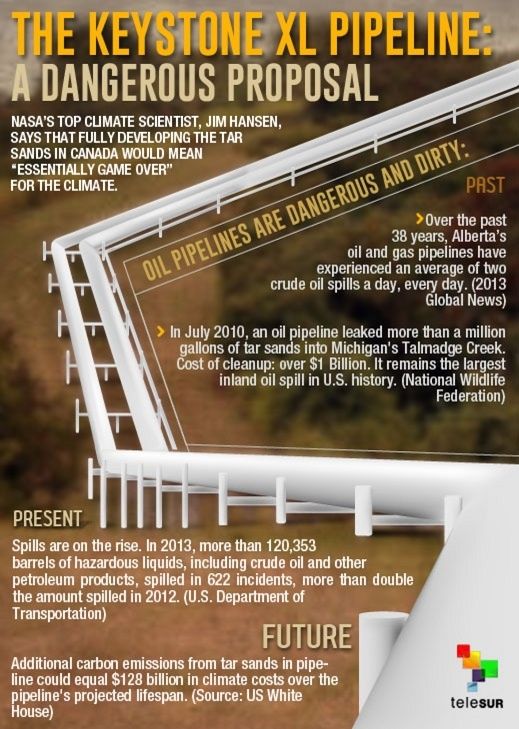The U.S. House of Representatives passed a final version of the controversial Keystone XL pipeline bill, which Obama is expected to veto within the next 10 days. The House voted to approve the building of the contentious pipeline 270 to 152.
The U.S. Senate passed an earlier version of the bill two weeks ago. Neither the Republican-ruled House nor Senate passed the bill with a large enough majority to override a presidential veto.
John Hoeven, Republican senator from North Dakota and the leader of the Keystone XL bill, said that he was prepared for the president to veto the bill, but said that the Republican leadership planned to pass key parts of the legislation by attaching “it to other bills — energy, appropriations, the highway bill.”
The Republican House Speaker John Boehner said Wednesday, “The president needs to listen to the American people and say: ‘Yes, let’s build a Keystone pipeline.’”
The Keystone XL pipeline is designed to transport crude oil from Alberta tar sands to Texas Gulf coast refineries. Over the years it has become a symbol of the national fight around climate change.

The bill also contains language that says that climate change is not real and not caused by human activity.
Last week, the Environmental Protection Agency released a letter saying that the State Department should review its assumptions that the pipeline would not make climate change worse. It argued that the pipeline would lower the transportation costs for oil companies to move oil across the country, and thus make it easier to transport more oil even though the current prices of oil are falling.